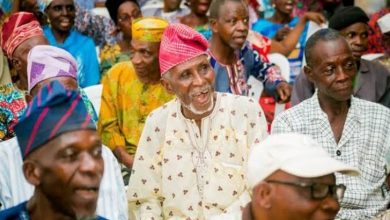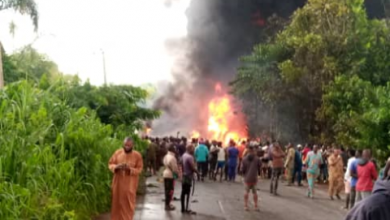
Ajimobi’s widow loses mother
Segun Showunmi in Ibadan
The widow of former Governor Abiola Ajimobi of Oyo State State, Florence Ajimobi has lost her mother, Mrs Victoria Amudoaghan at 78, and was said to be a Catholic and member of Our Lady of Fatima Catholic Church, Aguda, Surulere, Lagos.
Penpushing reports that, the family in a statement issued on Tuesday said the septuagenarian was a very hardworking and enterprising woman, who was born at Kwale in Ndokwa West Local Government Area of Delta State

The Chairman, Senate Committee on Local Content and lawmaker representing Oyo Central Senatorial District, Senator Teslim Folarin has commiserated with Mrs Ajimobi over the passing of her mother.
Penpushing further reports that Folarin, in a condolence message he personally signed and made available to journalists, conveyed his condolences, praying for eternal rest for the late woman
The three-term lawmaker prayed that God grants the family the fortitude to bear the loss, urging Mrs. Ajimobi to take pride in the fact that Mama lived a fulfilled, long and inspiring life.
FOOTNOTE: You want to share story with us? You want to advertise with us? You need publicity for product, or service, or event? Contact us on WhatsApp +2348073463653 or email penpushing@yahoo.com







